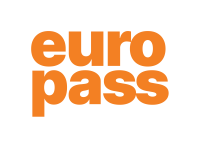
Project-Based Learning for Pre-school
Participants will discover PBL through a variety of inspiring examples and find out how to incorporate the PBL methodology into their own teaching experience. They will learn which tools are best for preschool students and how to be a good mentor in order to promote problem-solving, critical thinking, autonomy, collaboration, and other 21st-century skills.
Description
Pre-school teachers have a huge responsibility to educate tomorrow’s citizens, but it often feels hard for them to provide children with 360-degree, meaningful learning experiences. How hard does it sometimes feel to create a deep understanding of topics and life competencies? If you also cope with similar issues, project-based learning (PBL) may interest you. It is an educational approach that involves students working on a project over an extended period to explore and solve real-world problems or questions. PBL is well recognized as an effective methodology in higher grades of education, but with some adjustments, we can turn it into an invaluable tool for your preschool classroom. During the course, participants will discover PBL through a variety of inspiring examples, and find out how to incorporate the PBL methodology into their own teaching experience. Participants will learn which tools are best for preschool students, how to effectively evaluate their learning, and how to be a good mentor in order to promote problem-solving, critical thinking, autonomy, collaboration, and other 21st-century skills. Practical strategies and tools will be available for you to nurture children’s key competencies, such as literacy, numeracy, sequences, cause and effect, sizes, and comparisons, and you will be ready to use a working PBL model you’ll have shaped for your own students! Finally, the course will explain how to plan a successful, manageable PBL activity. By the end of the course, you’ll have realized how PBL can provide you with great solutions to design fruitful learning experienc...read more.
Learning objectives
The course will help the participants to:
- Understand what PBL really is and how it can be useful for any educator;
- Incorporate preschool curriculum topics such as literacy, numeracy, sequences, cause and effect, sizes, and comparisons into PBL;
- Get hints and tools to motivate students and boost their key competencies;
- Gain insight into a variety of activities that you can use in PBL (and beyond);
- Confidently implement PBL in their classes and/or school communities;
- Assess PBL products confidently;
- Evaluate students’ learning of curriculum topics;
- Create detailed, effective, manageable PBL lesson plans for preschool education.
--> Download all course info in PDF <--
Methodology & assessment
Certification details
Here's how we ensure your achievements are recognized and validated:
- Certificate of Attendance: Upon successful completion of your course, you will receive a Certificate of Attendance in line with Erasmus quality standards.
- Europass Mobility Certificate: If requested, you can also receive the Europass Mobility Certificate.
- Seamless Administration: We provide assistance and guidance to our participants throughout every step of the project: from the grant application to the final documents.
To make your participation accessible, our courses are designed to allow you to request 8 days of individual support for your subsistence costs. This includes 6 days for the course and an additional 2 days for travel.
Useful resources:
- Live Chat support: Monday-Friday | 8:30-22:30 CET
- FAQ
- Guides to Erasmus+
- OID Numbers and Fiscal Data
A 60 € late registration fee will be applied if you register less than 8 weeks before the course start date.
Pricing, packages and other information
-
Price:480Euro
Additional information
-
Language:English
-
Target audience ISCED:Early childhood education (ISCED 0)Primary education (ISCED 1)Lower secondary education (ISCED 2)
-
Target audience type:TeacherHead Teacher / PrincipalTeacher Educator
-
Learning time:25 hours or more
Past sessions
More courses by this organiser

Learning by Doing: Games and Activities to Develop the Whole Child

Playtime and Downtime for Teachers and Students: the Psychology of Time to Feel Good and do Good!


